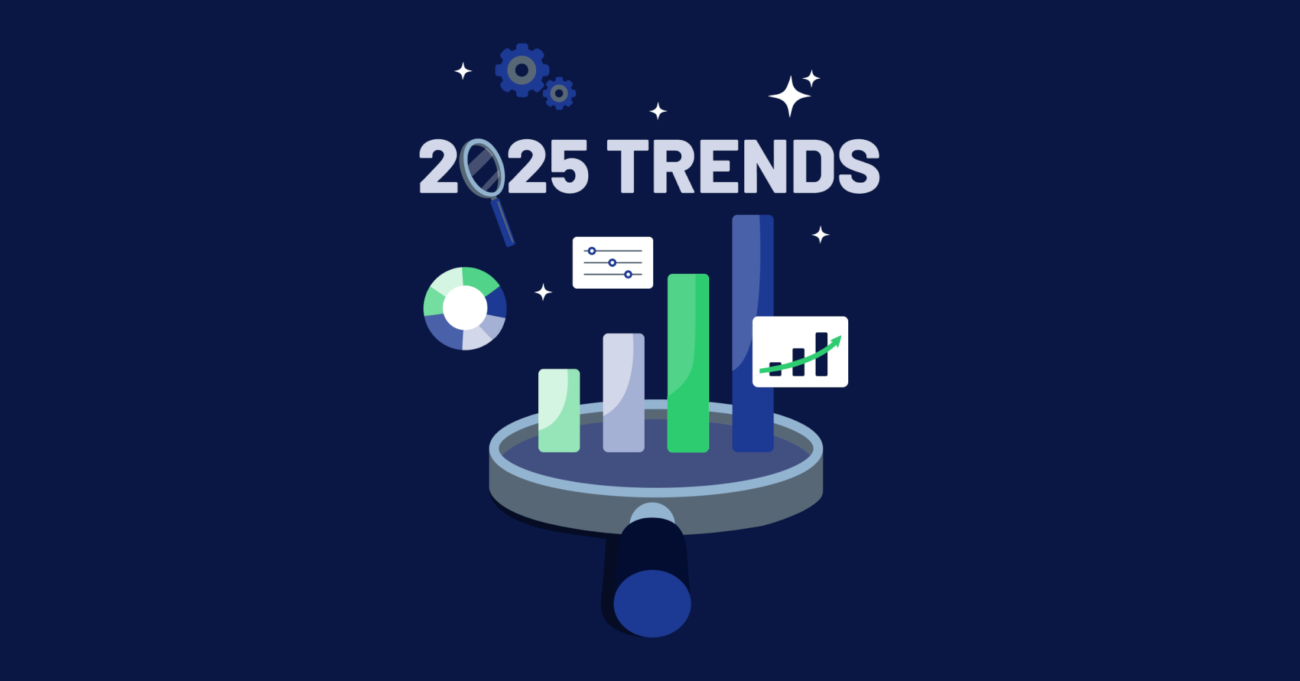Stay ahead of the curve by preparing for Google’s antitrust challenges, the growing impact of AI in SEO 2025, the ongoing importance of technical SEO, and more. The SEO landscape is already undergoing significant shifts, with even bigger transformations expected in the coming year.
With potential new access to Google’s data, competitors could disrupt the search landscape, requiring SEOs to adapt their strategies across various platforms.
Meanwhile, AI tools continue to evolve, presenting both opportunities and challenges—streamlining processes but also risking a more formulaic approach that can stifle creativity.
The challenge and SEO trends 2025? Finding the balance between innovation and authenticity, and blending SEO automation with AI and genuine human insight.
Which SEO best practices 2025 should shape your next steps? Let’s dive in.
1. Search Alternatives and Google’s Antitrust Trial
Google antitrust case SEO impact to share its data, the SEO world could face major shifts. This would allow Google’s competitors to leverage its Google AI search updates and algorithms, enabling them to develop competitive search engines much faster and create a more diverse organic landscape.
In this scenario, competitors starting with shared data could innovate independently, leading to unique search experiences. For SEOs, this would mean developing not just one strategy, but potentially many, to stay competitive across multiple platforms.
AI tools like ChatGPT, Claude, and Perplexity are already integrating search functions, hinting at a fragmented future for website SEO optimization. Additionally, if SEOs gain insight into Google’s data and algorithms, it could offer unprecedented transparency into ranking factors and user behavior, enabling sharper optimization strategies.
However, with greater access comes the risk of manipulation, potentially leading to low-quality content dominating search results, as it did in the early days of SEO. The U.S. DOJ is expected to release more details in November, with Google following in December. Until then, stay tuned.
2. AI as a Double-Edged Sword
With numerous AI-powered tools available, SEOs risk losing originality by relying too heavily on similar AI-generated insights. When everyone uses the same tools trained on identical data, differentiation can suffer, which may be why Google has emphasized the “Experience” factor in E-E-A-T.
Moreover, many AI tools function as “black boxes”—they process data in ways that aren’t transparent, leading to unpredictable results. Relying too much on AI could stifle critical thinking, an essential trait for SEO experts who rely on real-world experience and creativity to innovate.
To avoid these pitfalls, consider training your own AI bot tailored to your data and audience. Tools like Google’s Gems or ChatGPT’s GPT customization options allow for tailored AI-generated content, aligning with your brand, site, and unique strategy. Integrating data from sources like your CRM or Google Analytics can help you meet Google’s emphasis on originality while building a distinctive E-E-A-T profile.
3. Emphasizing E-E-A-T and Originality
In 2025, establishing E-E-A-T will remain key to SEO success. Google’s leaked API document referencing an “OriginalContentScore” signals a strong push for originality. Customer reviews, original research, and unique insights will be powerful assets.
Internal data, such as user search queries, support call transcripts, and product usage Latest SEO trends, can uncover valuable content opportunities. In turn, this strengthens the relevance and depth of your content, creating a foundation for better rankings.
Google’s recent acknowledgment of content creators further reinforces the importance of proving expertise. If you haven’t already, consider enhancing author bios to showcase expertise and authentic experience.
4. Focusing on User Intent Over Keywords
In 2025, optimizing for users rather than just keywords will be critical. SEOs should center content around user challenges and pain points, focusing on search intent rather than keyword volume. High-volume keywords can often mask unclear intent or be dominated by user-generated content (UGC) on platforms like Reddit and Quora.
Users increasingly search with long-tail keywords or questions, not short phrases. AI-driven content optimization that directly addresses these queries can help you avoid competing for overly competitive or irrelevant keywords. Algorithms will reward content that prioritizes user experience and relevance, providing specific answers and insights that meet users’ needs.
5. The Growing Importance of Technical SEO
Technical SEO will be more essential than ever. Best technical SEO practices, a well-optimized site structure, clean code, structured data, and effective internal linking are critical for efficient crawling and indexing by search engines. Accessibility, Mobile-first indexing SEO, Website speed optimization SEO, and optimize for Core Web Vitals are all technical SEO metrics 2025 that impact ranking.
In 2025, addressing JavaScript-related issues will be especially important for visibility. Sites heavily reliant on JavaScript need to ensure proper server-side rendering to prevent indexing issues. Both Google and Bing offer technical SEO checklists, and regularly reviewing insights from Google Search Console and Bing Webmaster Tools is recommended.
Adaptation: The Constant in SEO
The ability to learn and adapt remains a cornerstone of SEO success. Success comes from refining strategies across projects and being ready to pivot. As we approach 2025, staying agile in response to changes will set successful SEOs apart—especially for those who’ve navigated the industry’s dynamic landscape over the years.

